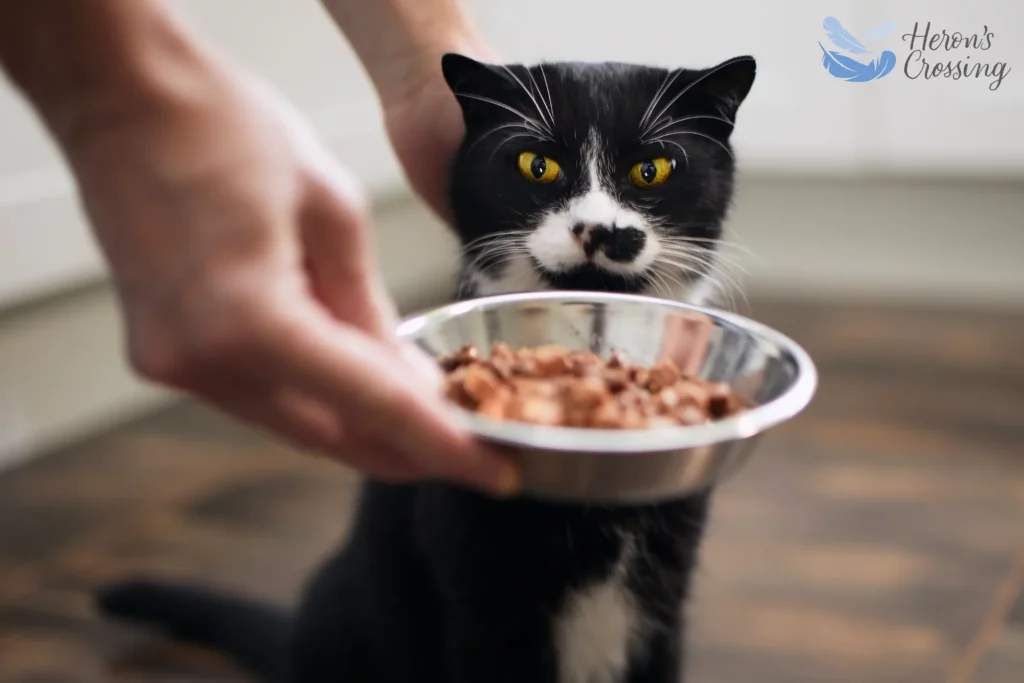Has your cat come running to the plate, only to turn up her nose and walk away? Does she hear the call to dinner, but refuse to join you?
Perhaps more than any other species, it is important for cats to eat regularly. If they don’t get a meal within 12 hours, they are prone to hyperacidic stomach and vomiting. If your cat refuses to eat for longer than that, suspect that more than a finicky appetite is involved, and a trip to the vet for a checkup would be in order. Going without food for more than 24 hours can potentially cause liver damage and can lead to death, so it’s important to make sure your cat gets plenty of nutrition.
In old age, cats may become more anxious, lose their sense of smell, develop chewing problems, have trouble digesting, or develop chronic ailments that cause irritable stomach or nausea. So it may become necessary to coax your cat daily to keep eating properly.
The Atmosphere:
Serve meals at the same time and the same place every day. Routine should help to condition your cat’s hunger response. Yet, sometimes cats want to eat somewhere else, or at another time. Is it too hot or cold in their usual spot? Notice whether something in the eating area is disturbing, such as a strong smell. Cats hate the scents of orange oil, bananas and rosemary, for example.
If your two-meal-per-day cat loses her appetite, try a few smaller meals throughout the day to help with digestion.
Sometimes it’s the shape of the dinnerware itself. Your cat’s whiskers can be irritated by too small of a bowl. A shallow, oblong shape is better. A plain butter dish may work just as well, if you have one on hand.
The Menu:
Cats are obligate carnivores. Their ideal diet is a ratio of 50% meat or fish and 50% fat. The addition of rice and sauces can make cats lose interest if they are not getting the nutrition they need. Try something plain instead.
Cats won’t eat if the food doesn’t smell fresh, so leaving food out all day will not help. Give your cat about 30 minutes to dine. If she eats only a few bites and walks away, this will give her time to rethink and circle back for the rest.
Like children, cats prefer one or two of the same foods, or the same texture, every day. Too many options overwhelm. If you have to switch to something new, mix it with the current food until your cat becomes used to it.
Flavor Boosters:
- Fish or krill oil for cats, or Bonito flakes (Japanese dried fish)
Scrambled egg or human grade tuna - Sprinkle some kibble or a treat on top of wet food
- A spoonful of unsalted broth (also helps with hydration)
- Flavored feline vitamin powder
Professional Assistance:
If your cat has a chronic condition that contributes to appetite loss, check with your vet for a prescription appetite stimulant.
What have you tried when your cat isn’t hungry? Sometimes the problem is resolved if we simply sit with our cat and encourage her. A meal served with love tastes even better.
Heron’s Crossing provides end-of-life care for pets in the Metro Atlanta area. In-home appointments with compassionate vets are available. If you’d prefer a home-like setting away from your home, our Decatur office is also available by appointment.

